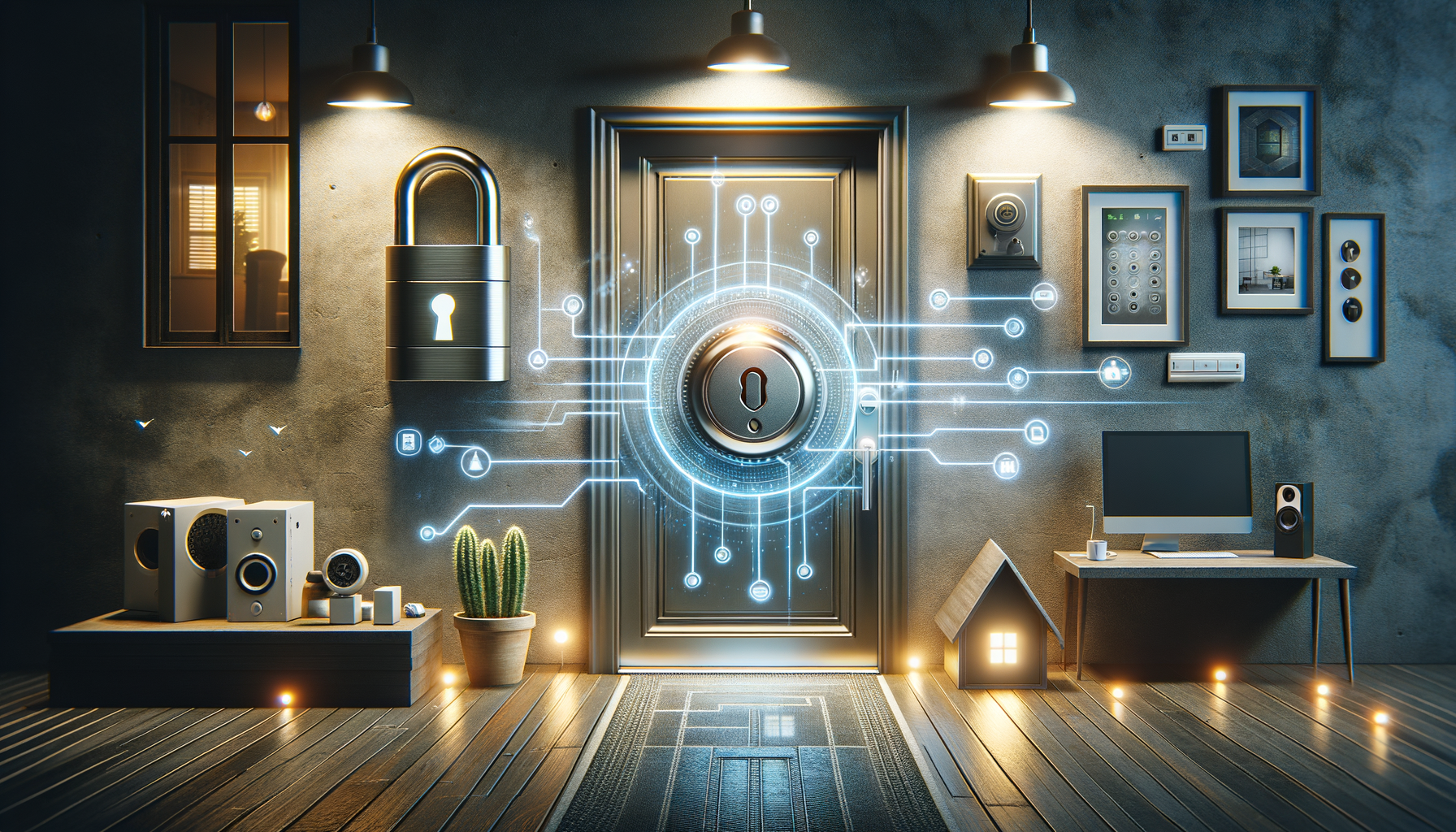Understanding Smart Locks: A New Age of Security
Smart locks represent a significant advancement in home security technology, offering homeowners a blend of convenience and enhanced safety. Unlike traditional locks, smart locks use digital technology to enable keyless entry, which can be controlled via smartphones, key fobs, or biometric systems. This innovation not only simplifies access but also allows for better management of who enters your home.
One of the primary benefits of smart locks is their integration with home automation systems. Many smart locks can be connected to home networks, allowing homeowners to lock or unlock their doors remotely. This feature is particularly useful for families with children or for those who frequently travel. Moreover, smart locks often come with activity logs, providing a detailed record of who has entered or exited the home, and at what times.
In terms of security, smart locks are designed to be more resistant to traditional break-in methods. They often include features such as tamper alerts and automatic locking mechanisms, which engage if a door is left unlocked for a certain period. This not only enhances security but also provides peace of mind to homeowners.
Comparing Smart Locks to Traditional Locks
When comparing smart locks to traditional locks, several differences stand out. Traditional locks, while reliable, require physical keys, which can be lost or duplicated without the owner’s knowledge. Smart locks eliminate this risk by using digital keys that can be managed and revoked instantly. This flexibility is a significant advantage in maintaining control over home access.
Furthermore, smart locks often offer enhanced security features that are not available in traditional locks. For instance, many smart locks come equipped with encryption technology that protects against hacking attempts. This digital layer of security is crucial in today’s world, where cyber threats are a growing concern.
However, it’s important to consider that smart locks require a power source, typically batteries, which need regular maintenance. In contrast, traditional locks do not rely on power, which can be advantageous in certain scenarios. Despite this, the benefits of smart locks, such as convenience and enhanced security features, often outweigh the drawbacks, making them a popular choice for modern homeowners.
Features to Consider When Choosing a Smart Lock
When selecting a smart lock, there are several features to consider to ensure it meets your security needs. First, consider the type of connectivity the lock offers. Options include Bluetooth, Wi-Fi, and Z-Wave, each with its own set of advantages. Wi-Fi connectivity allows for remote access from anywhere, while Bluetooth is more secure and conserves battery life.
Another important feature is the lock’s compatibility with other smart home devices. Many smart locks can integrate with voice assistants, security cameras, and home automation systems, providing a seamless experience. This integration can enhance security by allowing you to create automated routines, such as locking the door when you arm your security system.
Additionally, consider the lock’s design and durability. A robust, weather-resistant design is essential for outdoor use, ensuring the lock can withstand various environmental conditions. Look for locks with a high-security rating, indicating they have been tested against forced entry and other security threats.
Installation and Maintenance of Smart Locks
Installing a smart lock is generally straightforward, but it can vary depending on the model and your existing door hardware. Most smart locks are designed to fit standard door sizes and can be installed with basic tools. However, some models may require professional installation, especially if they are part of a larger home automation system.
Maintenance of smart locks primarily involves ensuring the power source is functioning correctly. Regularly checking and replacing batteries is crucial to avoid lockouts. Some smart locks offer battery status alerts, which can be sent to your smartphone, helping you stay informed about when a replacement is needed.
It’s also wise to periodically update the lock’s firmware to protect against potential vulnerabilities. Manufacturers often release updates to enhance security features and improve functionality, so staying up-to-date is important for maintaining optimal security.
Conclusion: Embracing the Future of Home Security
Smart locks are transforming the landscape of home security by offering a blend of convenience, advanced features, and enhanced protection. As technology continues to evolve, smart locks are likely to become an integral part of modern homes, providing homeowners with greater control and peace of mind.
By understanding the benefits and features of smart locks, homeowners can make informed decisions that align with their security needs and preferences. Whether it’s the ability to manage access remotely or the added security of encryption technology, smart locks offer a compelling option for those looking to upgrade their home security systems.




Leave a Reply